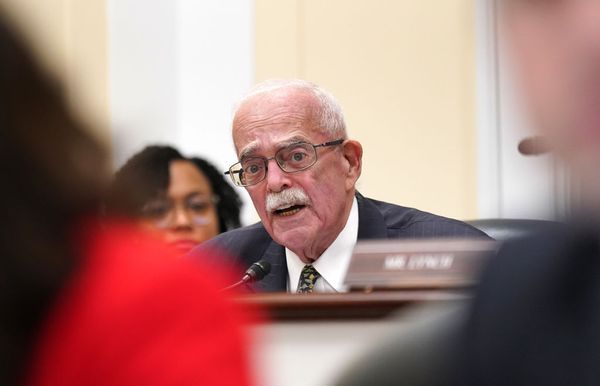
The head of the universities watchdog in England has said the “golden age of higher education” could be over and all options should be on the table as the funding crisis facing the sector is “significant”.
The Office for Students (OFS) interim chair, Sir David Behan, said increased tuition fees and lifting visa restrictions on international students could help revive embattled institutions.
“I think the resilience of the sector overall has been tested by a number of different forces ... the global pandemic, the impact of leaving the European Union,” he told the Sunday Times.
“We’ve had industrial action, the cost of living crisis, the increasing cost of pensions and decreasing number of international students, and then, finally, domestic undergraduate fees remaining frozen since 2012 ... and what it’s meant is that the fiscal deficit for some organisations is significant.”
He called on universities to explore mergers or partnership arrangements with other institutions, amid fears some institutions could be facing bankruptcy. “It’s important that universities revise their medium-term financial strategies ... They can’t just carry on,” he said.
Asked whether the government should look at increasing tuition fees or lifting postgraduate visa restrictions, he said: “If we’re going to mitigate these risks to this sector, we need to look at all these possibilities as ... we approach the budget in October, as we approach the spending review, there needs to be consideration of what the options are to secure the financial sustainability of the sector.”
University leaders have been calling for the raising of the annual tuition fee for domestic students in line with inflation to help institutions struggling financially. The previous government raised the cap on university tuition fees in England to £9,000 a year in 2012 but it has been fixed at £9,250 since 2017.
Universities argue costs have soared because of energy bills, inflation and compensation for students affected by lecturers’ strikes over pay and pensions. To boost their income, they have enrolled heavily from countries such as China, India and Nigeria, whose students pay up to £38,000 a year in tuition fees, but the recent restrictions on visas for overseas students has had an impact.
Thousands of graduates received their A-level results on Thursday when the education secretary, Bridget Phillipson, said any large increase in tuition fees in the next five years would be “unpalatable”.
She told Sky News: “I do recognise the challenge, and I hear that message from institutions as well, but I think that’s a really unpalatable thing to be considering.
“Not least because I know that lots of students across the country are already facing big challenges around the cost of living, housing costs. Lots of students I speak to who are already working lots of jobs, extra hours, in order to pay for their studies.” She said the government intended to “reform the system overall”.







